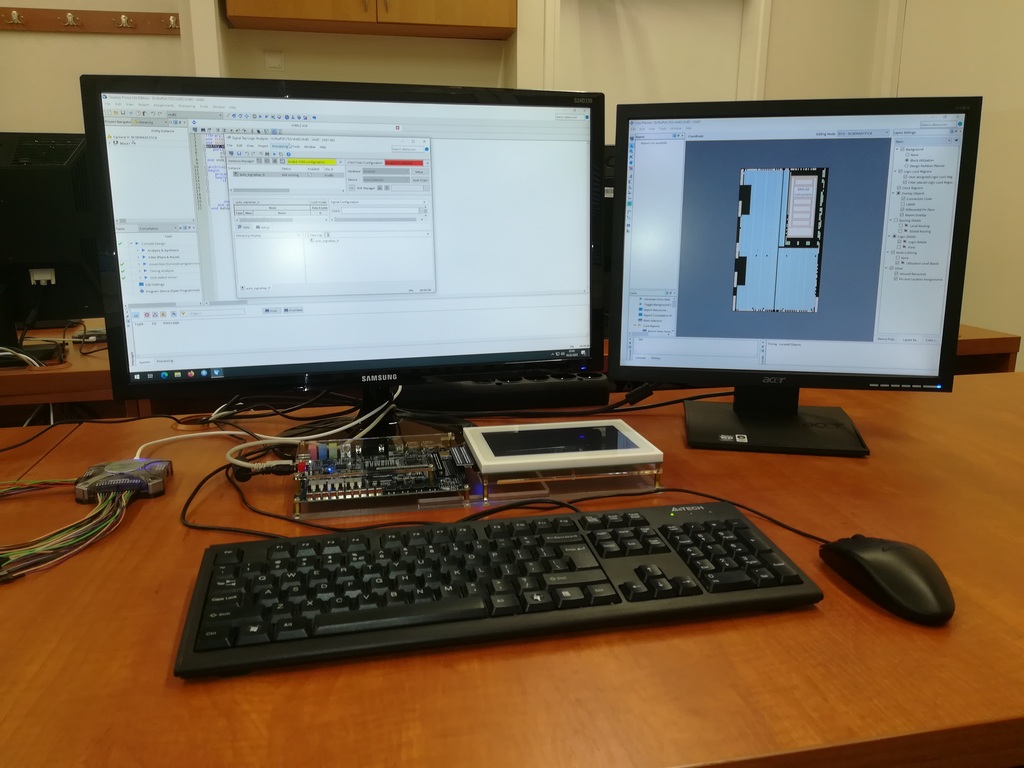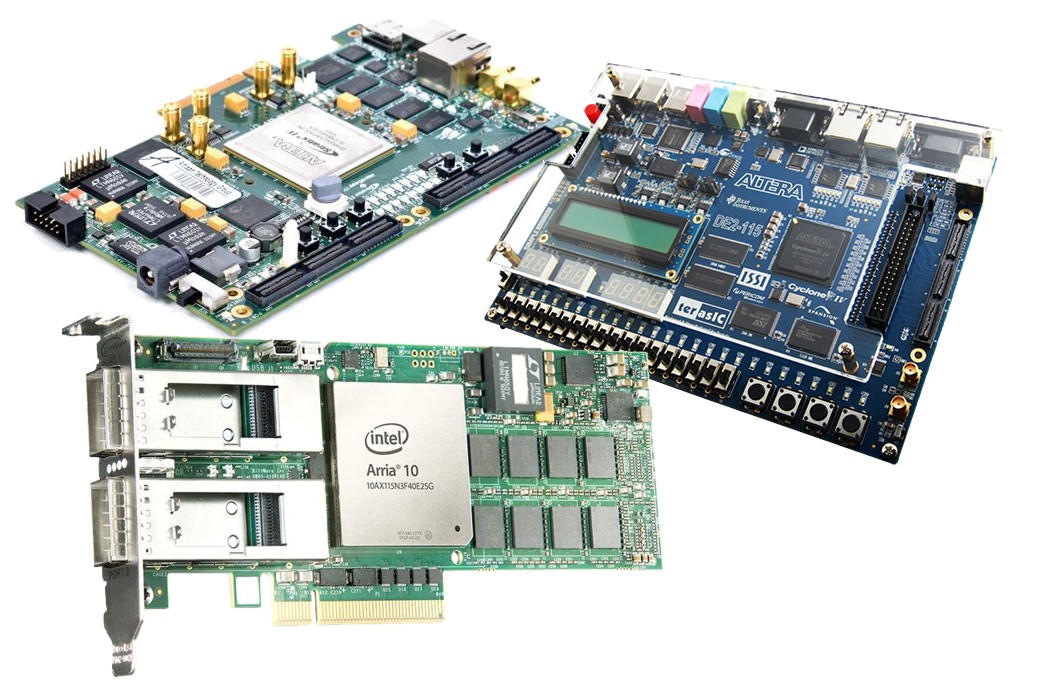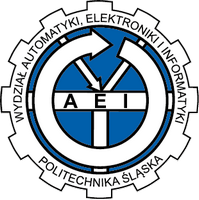Microinformatics of digital systems, master degree (full-time)
Characteristics
The interdisciplinary study "Microinformatics of Digital Systems" was prepared as a response to the market demand for the design, verification and implementation of complex, dedicated digital systems. It combines knowledge and skills from the areas of electronics and computer science. The study program includes core classes, directional subjects and a wide group of elective classes.
 The study includes two strongly intersecting specialties in the design and verification of digital systems. The classes are planned in such a way that each of the specialties obtains basic competencies in both areas and extended competencies in the area of the respective specialty.
The study includes two strongly intersecting specialties in the design and verification of digital systems. The classes are planned in such a way that each of the specialties obtains basic competencies in both areas and extended competencies in the area of the respective specialty.
An important element of the study program are Project Based Learning classes, enabling the acquisition of both competencies related to the design and verification of hardware digital systems, as well as competencies in the area of conscious undertaking and performing project roles, practical application of techniques in project tasks, application of project management methods and implementation of team tasks.
The learning outcomes take into account the comprehensive preparation of students, relying on both a strong theoretical basis and an emphasis on practical, problem-based and project-based activities.
The studies are carried out under the auspices of INTEL at the Katowice Faculty center, Poland.
Student profile
 The development of the study program meets the expectations of business entities. The studies are intended for those interested in acquiring knowledge in areas such as computer science and electronics in the design and verification of dedicated digital systems using FPGA and ASIC technologies, among others.
The development of the study program meets the expectations of business entities. The studies are intended for those interested in acquiring knowledge in areas such as computer science and electronics in the design and verification of dedicated digital systems using FPGA and ASIC technologies, among others.
Prerequisites
Completed engineering degree in a technical field, preferably related to computer science or electronics (teleinformatics, computer science, electronics and telecommunications).
Candidates are expected to have basic knowledge of the material:
- knowledge of mathematics, especially derivatives and integrals,
- electrical engineering and signal theory (Fourier transforms, including discrete versions),
- digital technology (logic gates, flip-flops, combinational circuit synthesis, sequential circuit synthesis), Boolean algebra and basics of digital arithmetic,
- programming in a high-level language (C required) and elements of object-oriented programming,
- ability to use Matlab in a basic way.
Issues
The study plan includes general subjects (languages and humanities subjects: Elements of Law and Project/Job Management Methods), directional subjects common to all specialties, specialty subjects and elective subjects. Students acquire knowledge in their chosen specialty. Common directional subjects include content from the areas of:
- Digital circuit design
- Hardware description languages
- Object-oriented programming
subjects taught in English:
- Design for testability
- System-on-chip
and the heralded specialty:
- Design and verification of digital circuits
Specializations
Students make their choice of specialization before the second semester of classes on the basis of their knowledge of general subjects and a subject referred to as a specialty herald. Offered are:
- Design of digital systems (PSC),
- Verification of digital systems (WSC).
Graduate profile
The graduate of the studies will obtain comprehensive knowledge and skills in:
- digital signal processing,
- hardware description languages, circuit and system modeling methods, hardware mapping, combinational and sequential circuit synthesis methods,
- hardware design of dedicated circuits, hardware implementation of algorithms, microprocessor design and hardware implementation of artificial neural networks,
- design of concurrent systems, task scheduling, optimization methods and synchronization of computation in hardware and software mapping,
- high-level system design,
- methods for verification of hardware systems using simulation and hardware emulation,
- functional verification methods, UVM methodology, and the use of formal verification elements in system design,
- methods and tools for designing very large scale integration (VLSI) integrated circuits.
Graduates of the studies can find jobs:
- in companies producing IP Core type intellectual value,
- in companies implementing digital hardware modules in signal and data processing, including telecommunications companies and space and satellite technology companies,
- in companies developing dedicated software for synthesis, implementation and verification of digital systems,
- in companies using digital and microprocessor technology, including in the area of Industry 4.0 and the Internet of Things.









